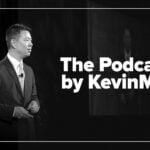Even before Mia was born, I could sense that something about her was different. With my other children, I felt constant movement during pregnancy, but Mia stayed curled up in one spot and hardly moved at all. When I mentioned this to my obstetrician, he assured me that it was normal. But I was sure that there was something more going on.
As soon as Mia was born, there were signs that she could have a medical condition. She had a skin tag on her ear, tightness in her neck on one side, and a broken growth plate below her femur. Mia stayed in the neonatal intensive care unit (NICU) for a few days because she was struggling to breathe. These symptoms led the doctors to test her for a genetic condition called Turner syndrome. We waited three agonizing months for the test results, only to hear that they were negative.
My husband and I were relieved at first, but we quickly realized Mia’s symptoms were still unexplained. She wouldn’t startle, couldn’t raise her arms above her head, and didn’t pass her hearing test for her right ear. When we brought these concerns to her pediatrician, he reassured us and promised to reevaluate her at two years of age. But my intuition told me that if we waited, we’d miss something critical.
Doctors are taught: “When you hear hoofbeats, think of horses, not zebras.” It’s a way of reminding them to consider common explanations first rather than spend time searching for rare conditions. But what if your child is a zebra?
Before Mia was five months old, I absolutely knew that if she was going to get the care she needed, I’d have to be her fiercest advocate. I left my job of 11 years to focus solely on her care. My entire life shifted from being a working mother into a full-time caregiver. When I voiced my concerns to Mia’s orthopedic surgeon at UC Davis, I finally felt heard. She agreed that Mia’s case warranted further investigation and referred us to specialists in neurology and genetics.
When we saw the neurology team, they recognized Mia’s very low muscle tone and admitted her to the hospital for failure to thrive. An MRI revealed an underdeveloped cerebellum and a thin corpus callosum, which can cause motor and speech delays. From there, we were fast-tracked to the genetics team. They ran additional genetic tests to look for what could be causing Mia’s symptoms. After four torturous weeks of waiting, we finally had an answer: glycogen storage disease Type IV (GSD IV).
GSD IV is an ultra-rare condition caused by changes in the GBE1 gene and is inherited in an autosomal recessive manner. It is a disease spectrum—with early-onset and late-onset symptom presentations—that occur when the body has low activity of a specific protein needed to make glycogen, a stored form of energy. The abnormal glycogen does not have the correct shape, causing it to build up into clumps called polyglucosan bodies. The early-onset (or “pediatric form”) of GSD IV presents at different stages from in utero to adolescence, causing liver, neurologic, muscle, and heart manifestations. The adult-onset form of GSD IV—referred to as adult polyglucosan body disease (APBD)—presents as early as in the mid-30s with primarily neurologic and muscle manifestations.
Even with a clear diagnosis, the challenges didn’t end there. Getting the equipment Mia needed, like her feeding chair, CPAP machine, electric wheelchair, and scoliosis brace has been a battle. I’ve had to research everything myself, seeking out the right devices and asking for them. One of the most difficult obstacles we have had to deal with is our limited access to resources. The distances we travel each week—four hours each way to the hospital in Sacramento and three hours round-trip for occupational therapy in Redding—have drained us both financially and emotionally. For example, finding a physical therapist with expertise in these metabolic disorders was especially challenging. For now, Mia receives physical therapy via virtual appointments; this is a challenge because the therapist can’t physically hold her.
The unknowns are the hardest to bear. Although I have learned a lot in the last two years about GSD IV, I still have questions, and I’m realizing that even the experts don’t have all the answers. No one can tell us if her liver will be affected, if she will ever walk, or her expected lifespan. Most of what I’ve learned about Mia’s condition comes from other families affected by it. Families who, like us, are becoming the experts on GSD IV themselves.
For Mia’s sake, I’ve started advocating in our community, pushing for wheelchair accessibility in our schools. They’ve already modified the kindergarten playground, and I’m working with the schools to get the bigger playgrounds accommodated. I want the schools to be ready for Mia by the time she gets there. She deserves to feel included, not defined by her differences.
In May 2023, we took Mia to see Dr. Priya Kishnani and Dr. Rebecca Koch at Duke University for an evaluation based on guidance from our doctors at UC Davis. We got Mia into the GSD IV, including APBD, Natural History Study, recognizing that Mia’s journey was crucial to bringing more understanding to how this disease progresses over time. Working with the Duke team, we know that my husband and I are doing our best to help Mia as we navigate the unknowns. We now go to Duke at least once a year for follow-up evaluations.
Dr. Koch shared, “When we met Mia and her sweet mother Amber here at Duke a few months after she received her diagnosis, we were learning from our natural history study that there are patients like Mia with a neuromuscular form of GSD IV who are not well represented in the scientific literature. I will never forget the first time I met Mia: She had a long day of medical appointments, and she was napping against Amber. After a few minutes, she woke up and had the biggest smile. We talked with Amber and explained what we know about GSD IV, as well as the unknown. I truly look forward to seeing Mia as she grows up because she has shown us that you cannot set a limit on what she can do. She is a happy, curious, and sweet little girl, and she is not defined by her GSD IV diagnosis. Mia, with her encouraging smile, is someone who is always in the back of my mind and pushes our team to go the extra mile to better understand these ultra-rare, under-recognized diseases, improve management approaches, and discover treatments.”
Dr. Koch added, “Amber’s advocacy and unwavering dedication to her daughter is beyond admirable. By working with the APBD Research Foundation to share Mia’s story, Amber is helping raise awareness, identify and connect more patients, and unite our research efforts to finding a treatment for everyone affected by GBE deficiency, regardless of age.”
If I’ve learned one thing, it’s that being Mia’s mother means being her voice and her constant support. I’ve gained a depth of medical knowledge I never thought possible and discovered a strength I never realized I had. For anyone else on a similar journey, my advice is to speak up. Don’t be afraid to advocate for your child, even if it feels uncomfortable or intimidating. Our children need us to fight for them, and we parents can’t be silent.
Amber Robertson is a patient advocate.



















![Stopping medication requires as much skill as starting it [PODCAST]](https://kevinmd.com/wp-content/uploads/The-Podcast-by-KevinMD-WideScreen-3000-px-4-190x100.jpg)
![Weaponizing food allergies in entertainment endangers lives [PODCAST]](https://kevinmd.com/wp-content/uploads/The-Podcast-by-KevinMD-WideScreen-3000-px-3-190x100.jpg)


![AI censorship threatens the lifeline of caregiver support [PODCAST]](https://kevinmd.com/wp-content/uploads/Design-2-190x100.jpg)
